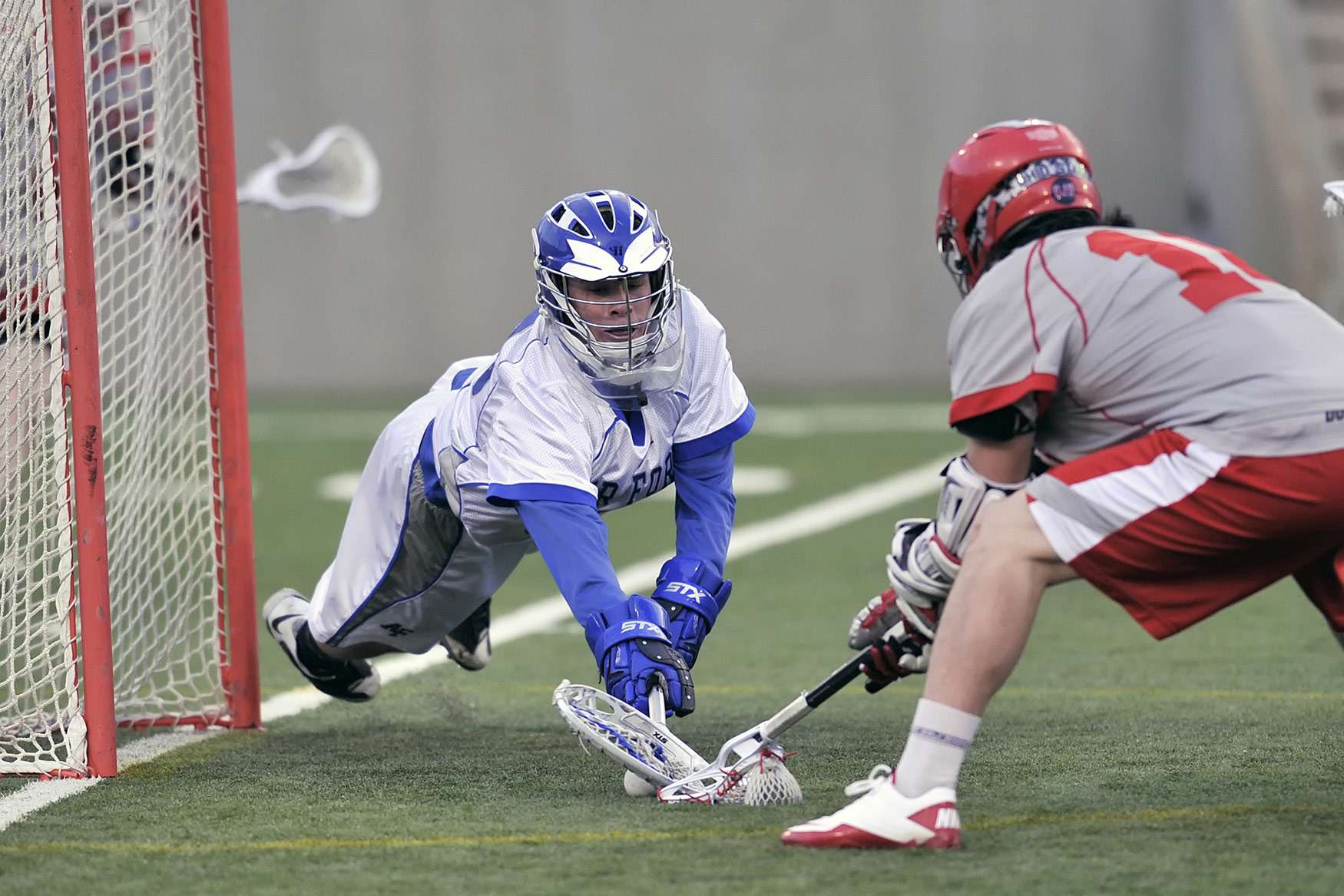How to Play the Field: 5 Tips for College-Bound Student-Athletes
August 08, 2016 :: Admissionado
Darren was thrilled to be playing at a Division I school…
Until he injured his knee and was put on the sidelines for the majority of his freshman year. It was only then that he realized there was nothing else about this particular university that he liked. Stuck in a rural town with an academic program that barely interested him, he found himself wishing that he had considered something more than his ‘athletic career’ when applying to college…
Student athletes in particular have a lot to consider while applying to colleges and universities. Ideally, they should not only find a coach and a team that suits them, but an academic and social environment that they love, as well. In order to help student athletes do just that, we put together a list of five important things they should consider when applying to college:
1. Decide what level of play to aspire to…
And determine if that level is realistic. There are over 1,000 member colleges and universities in the National Collegiate Athletic Association (NCAA), and these schools are divided into three divisions. Students should determine before applying which schools match their athletic and academic capabilities. Here is an overview of the three NCAA Divisions to help you narrow down your list of schools:
D1:
The 350 Division I schools have the largest student bodies, athletic budgets and
number of scholarships. They are also committed to maintaining a high academic standard for student-athletes. This division includes more than 6,000 athletic teams and represents over 170,000 student athletes. It is the most competitive.
D2:
Division II schools attract athletes that are as skilled and competitive as D1; however, these schools typically do not have as significant of financial resources devoted to their athletic programs. The heart of the Division II philosophy is a balance of academic success, athletic contributions and campus/community involvement.
D3:
Finally, Division III, the largest division, is made up of 450 institutions. These schools place the primary focus on academics by “minimizing the conflict between athletics and academics.” Athletes in this division are “students first” and are fully integrated into the student body on campus.
There are also options at most colleges for students who would prefer to play recreationally on intermural or intercollegiate club teams.
2. Choose a school you would like to attend… with or without their athletic program
While choosing an athletic program is an important consideration, students should understand that athletic participation is only part of the college experience. Choosing a college or university that is a good fit academically, environmentally, socially AND athletically, will help student athletes maximize their experiences in the long run.
The reality is that most college athletes (including really incredibly ones) do not go on to play professionally. With this in mind, it is important to choose a college or university that also offers academic programs that are of interest to you, which will help to set you on a successful career path post-graduation. Moreover, occasionally student athletes are suddenly no longer eligible to play, say because of an injury or low GPA. If a school is not somewhere you would want to attend if you suddenly couldn’t play your sport, then it’s probably not the best option for you.
3. Attend summer sports camps
Attending summer camps at the schools that you are interested in is a great way to get a feel for the campus and team atmosphere. Moreover, it’s a great opportunity to build teamwork and leadership skills, and it will give coaches a chance to see you play! From Brown’s Summer Sports Camps in the Ivy League to Ohio State Buckeye Sports Camps in the Big 10, there is a camp for every student athlete.
4. Know when to apply
Student athletes are often faced with special application timing considerations. For example, the NCAA has strict rules that define when the recruiting process can occur. Student athletes should familiarize themselves with the ‘four contact periods’ – contact, evaluation, quiet and dead, so they are aware of when coaches are permitted to contact them and when they can reach out to college coaches in time for that coach to watch them play.
College coaches that are particularly eager to secure an athlete, may urge that student to apply early. In this case, students should also be aware of the rules and obligation of applying early action or early decision and should consider, as we already mentioned, whether or not the school is a good fit for them athletics aside.
5. Understand that athletic eligibility does not guarantee admissions
It’s important to remember that the admissions committee, not the coach, makes the final admissions decision (unless of course you’re Vince Young). However, there are many instances where being recruited will work to a student’s advantage. Some students have the opportunity to apply using a special application code provided by the institution’s athletic department. This tells the admissions committee that the athletic department is interested in this particular student.
So, in order to secure admission at your dream school in your dream athletic program, start planning early. Student athletes should determine the level of intensity at which they want to play, explore both athletic and academic programs and create a timeline that increases their chances of being recruited. And (of course) continue to work hard on the field AND in the classroom.
We asked Julien Aomaya, Admissionado College Mentor and former Captain of the Amherst soccer team, to weigh in on what a high school athlete can do to prepare for the college admission process. Here’s what he had to say:
There are many great ways to get involved in college as an athlete: some students play at the club/intermural level for social reasons, others are recruited as more serious athletes, and a few even see it as an avenue to play professionally. For those students who want to get recruited, my advice is to start planning early. Start talking to college coaches during your sophomore year and go to the showcases where schools you’re interested in will be recruiting. Most importantly, find a quality team, be it at your school or in a club, that is going to help you play at your highest level. And (of course) keep your grades up to match the institutions that you’re interested in!




